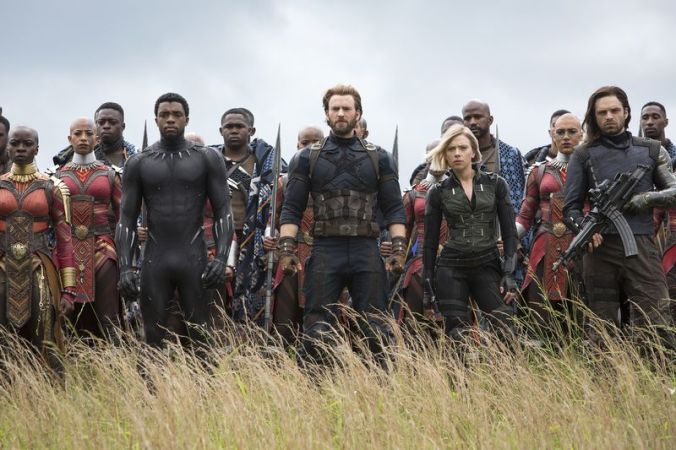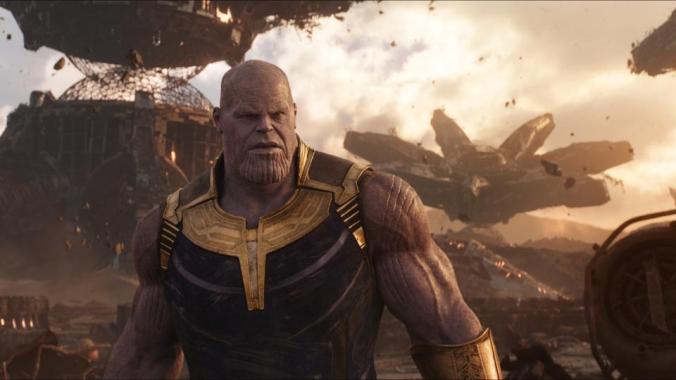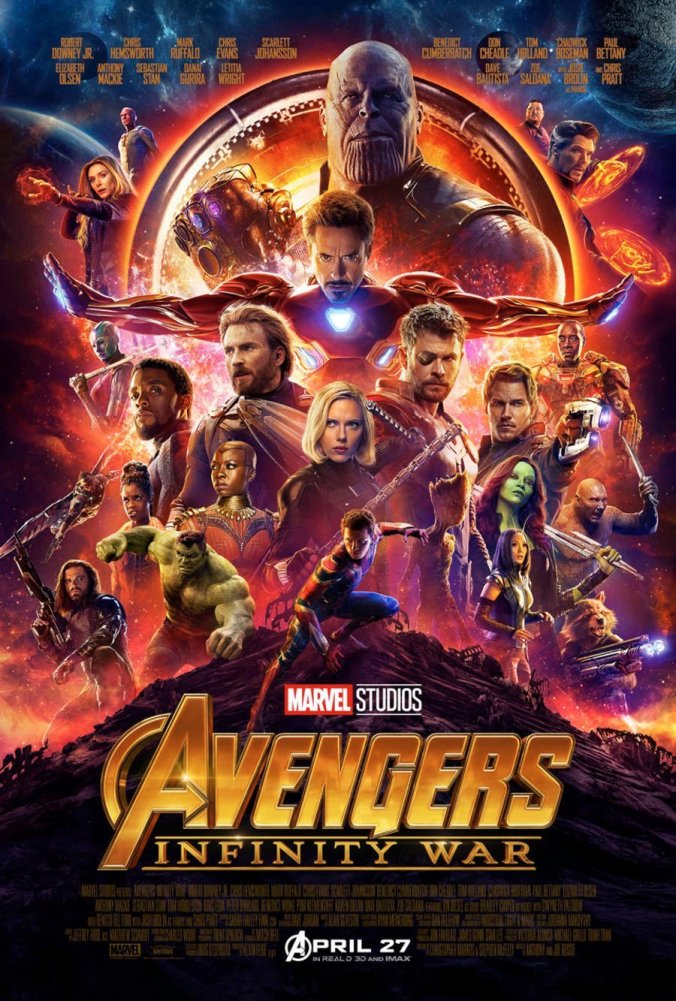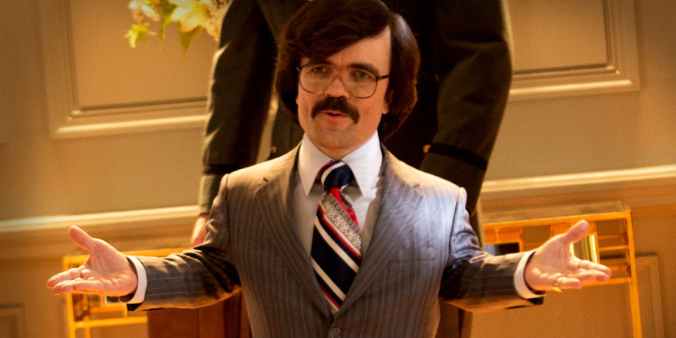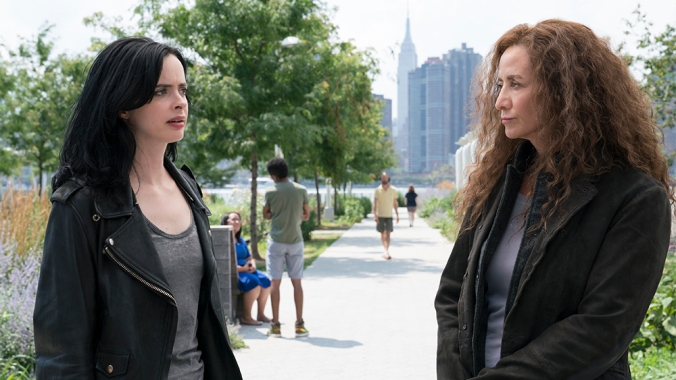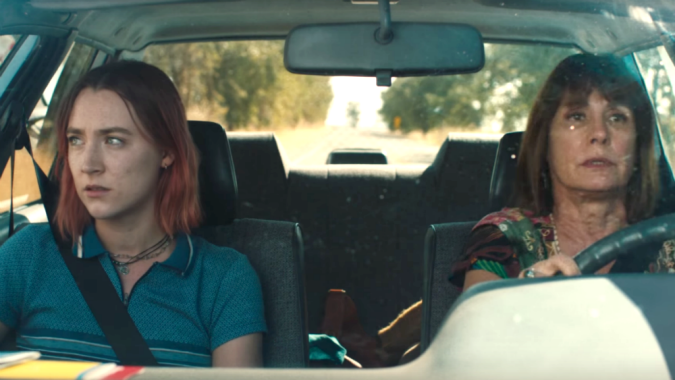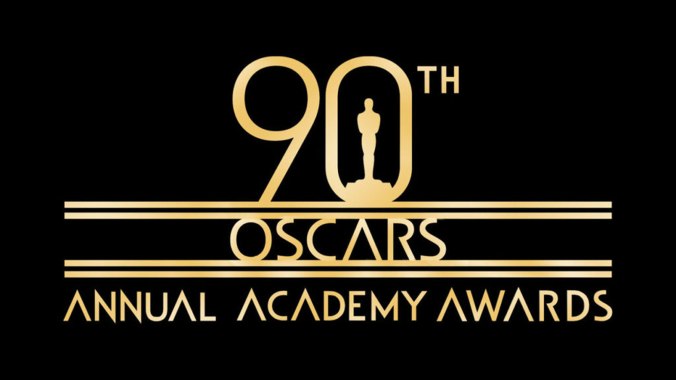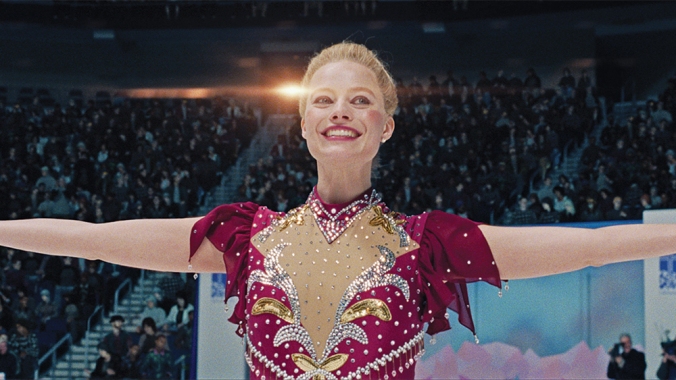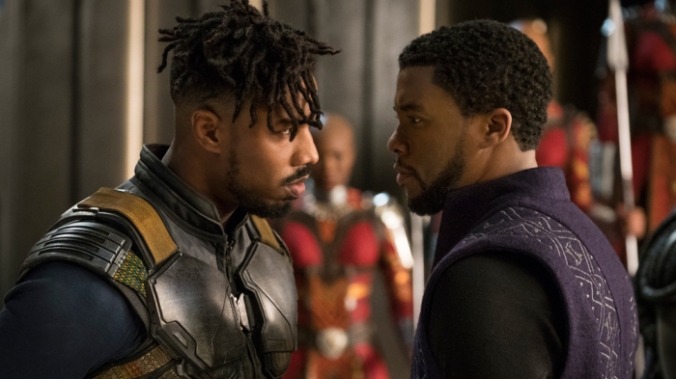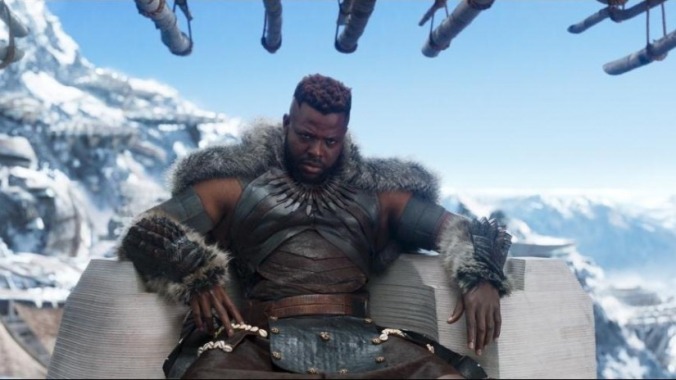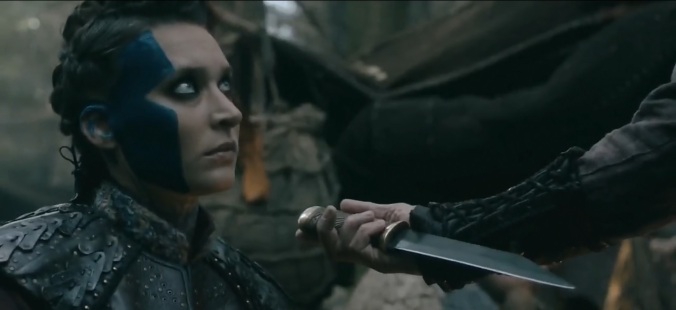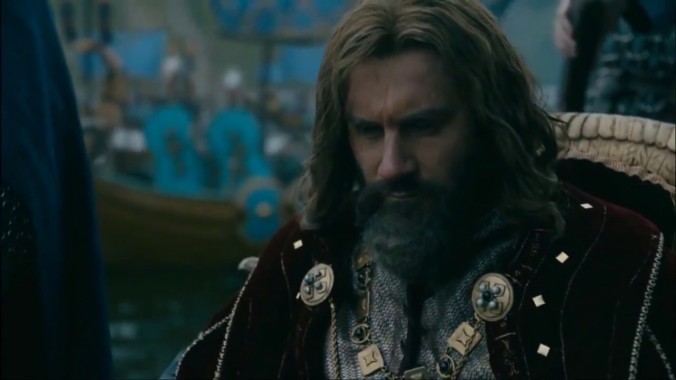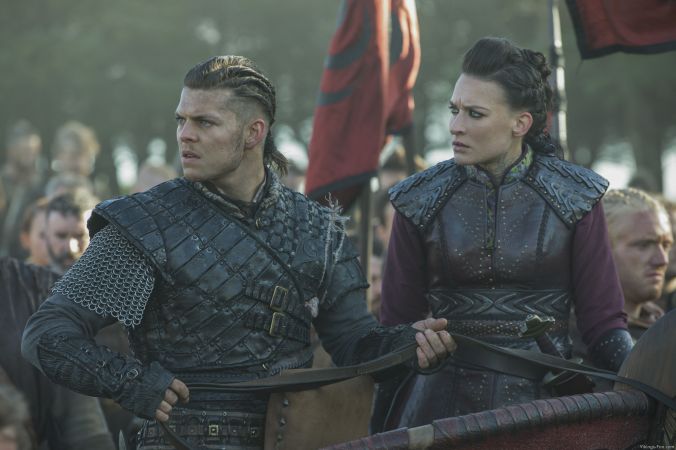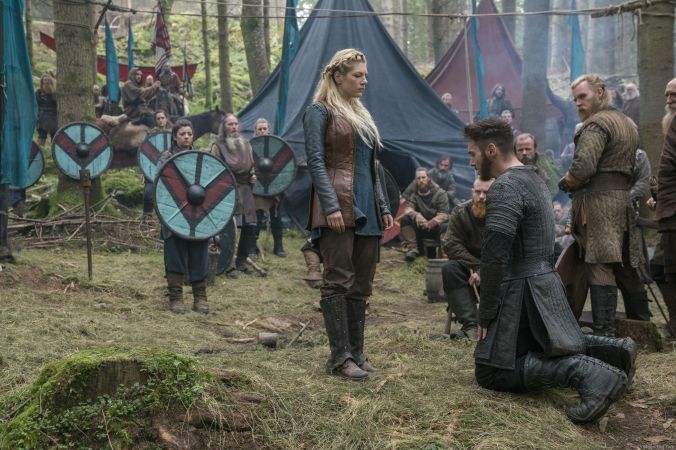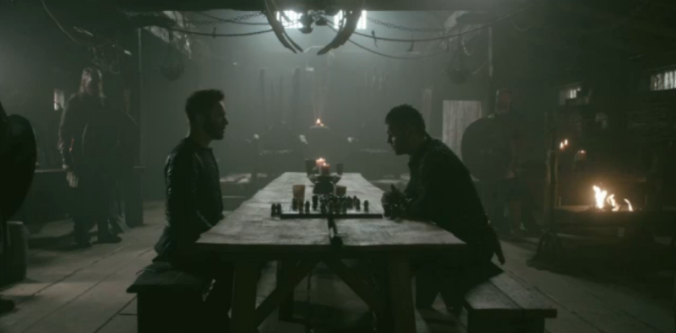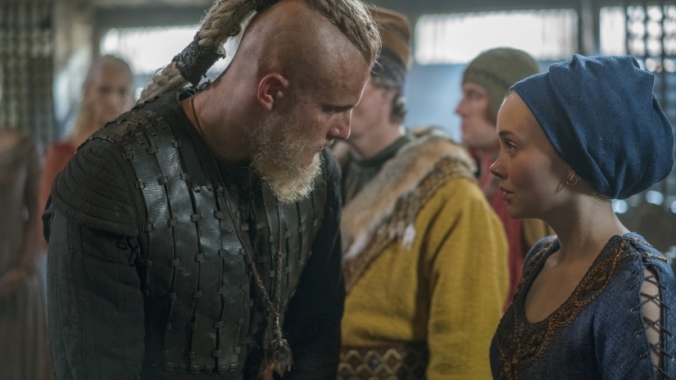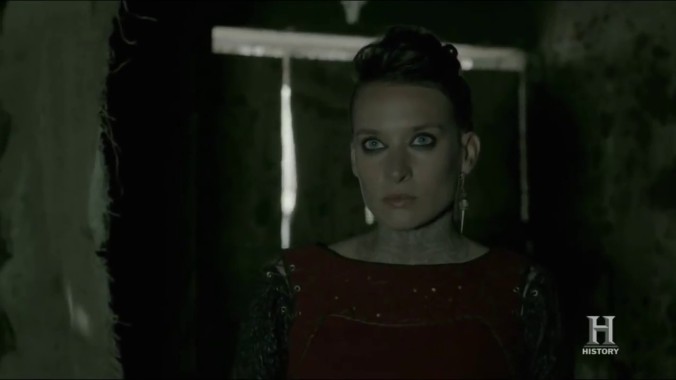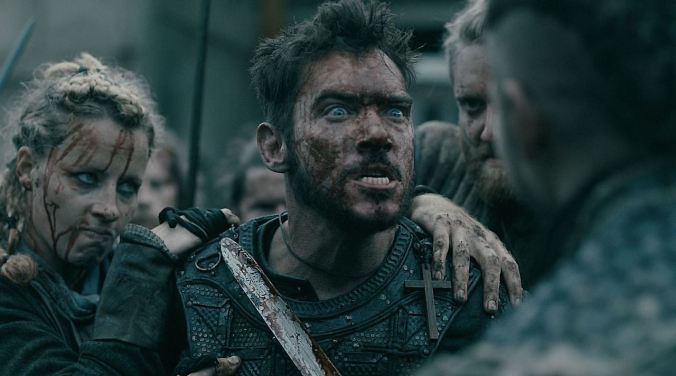Avengers: Infinity War. This is what it’s been building up to ever since Thanos swivelled around in his chair in a post-credits scene. It was a simpler time back then. We only had one Avengers team and it consisted of only six heroes: Iron Man, Captain America, Thor, Hulk, Black Widow and Hawkeye. It’s been six years since then; six years of build up, of new superheroes, of new villains, of Thanos bidding his time. Now, after all that time, Thanos is seeking out the Infinity Stones and it’s up to Earth’s Mightiest Heroes to stop him in one single, epic outing.
And that’s really what Avenger: Infinity War is. If you remember as a kid, you would watch cartoons and programmes and occasionally they would have a ‘feature length episode’. Avengers: Infinity War feels like a feature length version pf Marvel’s already impressive catalogue of superhero movies. Or to put it in comic book terms, it’s the crossover event, where they pull all the characters into one large scale conflict. With comics though it was often a way to sell more comics by forcing the reader to purchase a series they didn’t usually buy. Disney/Marvel did the same thing with their movies, encouraging people who otherwise wouldn’t have cared about characters like the Guardians of the Galaxy and Doctor Strange to see their movies or risk not knowing what was going on in Captain America: Civil War or Thor: Ragnarok. Basically, Infinity War is your reward for having sat through every Marvel film up to this point.
With that much hype weighing upon the film it would have been very easy for it to crumble under the sheer pressure of having to live up to the immense expectations. What’s more impressive is that Infinity War kinda does live up to its hype. It’s by no means a perfect movie and decades from now no one is going to be debating that Infinity War is better than Citizen Kane or Gone with the Wind, but for what it is and what it’s trying to live up to, Infinity War is pretty damn entertaining. There’s lots of action, some emotional beats and there’s a fair bit of witty banter from the heroes as we’ve come to expect from Marvel films.
In fact, one of the main points that this film gets right is the balance between action and comedy. Some of the most recent films, such as Guardians of the Galaxy 2 or Thor: Ragnarok tried to overlap the action and comedy so much that the humour sometimes undercut the tension. Sure, it was funny but it sometimes left the films feeling deflated, robbing them of any emotional poignancy. Infinity War managed to straddle the line quite well, though in part that may be due to the length of the film. At two hours, forty minutes, Infinity War is the longest Marvel film to date, and that allows the Russos to really separate the comedy and the action and allow each to have its place.
Thanos was also fairly compelling as a villain. As the Mad Titan, it fit with the character that his motivations and plan should be completely insane. He wants to wipe half of the universe from existence so that the rest can live better lives. Even if he’s right, which there’s no evidence of, he’s willing to commit genocide and he spares no thought or compassion for the people he’s erasing or the hurt it bring upon those left behind. It’s quite interesting to watch characters try and dissuade him, only for Thanos to stubbornly hold to his plan. It’s rare to see a villain with such conviction and force of will, whose end goal isn’t god-worship or total dominion.
The biggest flaw of Infinity War is, as you might expect, the number of characters. While the film handles the cast size well, and everyone has a job some of those jobs are little more than ‘punch that monster’. Which is understandable, because when you have this many superheroes in one spot, you’re never going to be able to give everyone their moment or showcase everyone’s abilities. But it also means that there’s a lot going on and on a lot of different planets across the universe from each other. It can get overwhelming and distracting at times.
Regarding the ending, it is bold. Even though some, or all, of it may get rewritten in Avengers 4, it’s still a fairly gut wrenching conclusion. And I think it’s also necessary to think of how this will be perceived by casual viewers. A typical audience may not spend their days immersed in the rumours and background stories of Marvel Studios. They may only know what film is coming next by the trailers that show in the cinema. Not everyone has Marvel’s schedule committed to memory. So when a film ends as drastically as Infinity War did, well, they may just believe that it is permanent.
Marvel is it’s own worst enemy in this regard. The fact that we have schedules and do know of upcoming releases mean that we can tell there are likely to be some shenanigans in Avengers 4. And maybe that might render some of the emotional pull of Infinity War moot, but I think that Infinity War deserves to be judged based on its own merits and flaws, at least for now. For example, Captain America: Winder Soldier wasn’t good because it followed on from Avengers or because it led into Captain America: Civil War. It was good because it was interesting, entertaining and had emotional, personal stakes for Steve Rogers that got audiences invested. Maybe Avengers 4 will wind up making Infinity War look dumb but for now, it should be appreciated for what it is: fun.
If you though Avengers: Infinity War wasn’t fun, hit me up in the comments. Or you can catch me through social media. They’re all there at the side. Otherwise, feel free to peruse previous posts to PreposterousProse, such as the Black Panter review or Thor: Ragnarok review. Finally, if fiction is more your forte, you can read my second novel, Carrion Youth, for free, over at swoonreads.com.
